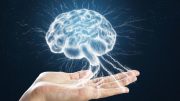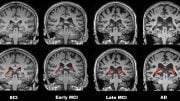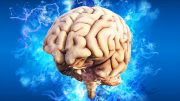
A recent study highlights cognitive improvements in individuals experiencing cognitive decline through a personalized, multimodal care plan over six months. The findings, showing enhanced scores in various cognitive tests, emphasize the potential of addressing and potentially reversing cognitive impairment holistically, offering renewed hope for managing Alzheimer’s Disease and Related Dementia (ADRD).
A new study reveals groundbreaking results: A multimodal strategy demonstrates potential in reversing cognitive deterioration in individuals experiencing cognitive decline.
Dr. Heather Sandison, a leading expert in Alzheimer’s Disease and Related Dementia (ADRD) care, has recently published a groundbreaking study in the Journal of Alzheimer’s Disease, highlighting significant improvements in cognitive function among individuals with cognitive decline. This research is the second of its kind to utilize a multimodal, personalized care strategy, offering further hope for managing and potentially reversing cognitive impairment.
The research focused on people with objective cognitive impairment (OCI), a condition leading up to Alzheimer’s disease. Dr. Sandison and her colleagues enlisted 34 participants from the San Diego, CA area to undergo a comprehensive intervention. This intervention targeted possible factors contributing to cognitive decline, including lifestyle alterations, nutraceutical assistance, and medications.
Over the course of six months, the participants underwent regular clinical visits and received ongoing nutrition support through weekly phone calls. Cognitive function was assessed using the Cambridge Brain Sciences (CBS) battery and the Montreal Cognitive Assessment (MoCA) at baseline, one, three, and six months.
The results of the study were highly encouraging. After six months of intervention, the participants demonstrated significant improvements in cognitive function. MoCA scores increased from 19.6 ± 3.1 to 21.7 ± 6.2 (p = 0.013), indicating enhanced cognitive performance. Moreover, significant improvements were observed across all domains of the CBS cognitive battery, including memory, reasoning, verbal ability, and concentration.
Dr. Sandison commented, “It is so fulfilling to see patients improve and watch meaningful change not only for the patient but also their loved ones as they regain cognitive function. I’m hopeful these findings start the process of turning anecdotes into statistics and more patients begin to have access to this type of treatment.”
The study’s results have important implications for the field of Alzheimer’s research and care. Currently, 6.5 million Americans have been diagnosed with Alzheimer’s disease and this number is only growing. This study highlights the importance of addressing cognitive decline through a holistic and personalized approach, targeting various factors that contribute to the progression of the disease. The study demonstrates the feasibility and impact of a multimodal intervention approach to cognitive impairment.
Further research is warranted to validate and expand upon these findings. Dr. Sandison’s study represents a significant step forward in understanding and treating cognitive decline associated with Alzheimer’s disease. It underscores the importance of personalized, comprehensive care for individuals with cognitive impairment and sets the stage for future advancements in the field.
Reference: “Observed Improvement in Cognition During a Personalized Lifestyle Intervention in People with Cognitive Decline” by Heather Sandison, Nini G.L. Callan, Rammohan V. Rao, John Phipps and Ryan Bradley, 1 August 2023, Journal of Alzheimer’s Disease.
DOI: 10.3233/jad-230004









Be the first to comment on "Groundbreaking Findings – Early Alzheimer’s Treatment Shows Improvement in Cognition"